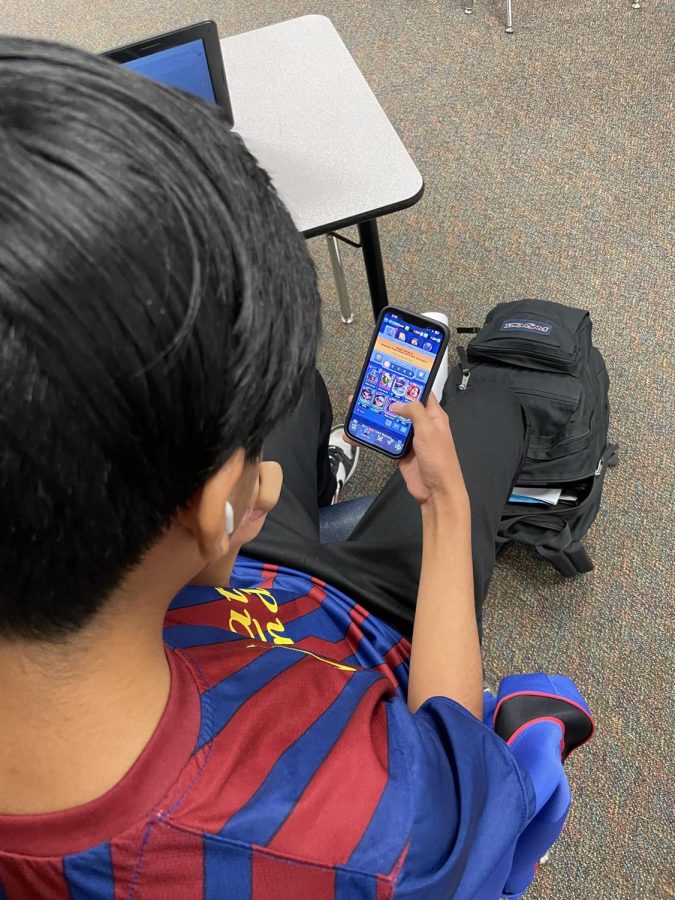The Impact of Your Phone on Kid’s Mental Health – How Much Control do Kids Have?
The phone: accessible, easy to carry, and you can get a cheaper one with the same functions as a new, expensive one. The prices of phones vary, but nonetheless, the number of kids with phones increases.
June 14, 2023
As you walk down the cities downtown or stroll around your community center, most kids in this modern era are looking down at their phones or some digital device in their hands. The starting, average age at which kids receive their first type of technological device has increasingly gotten younger and younger over the past few decades. This phenomenon of devices everywhere with everyone—which no one could’ve imagined after the first, bulky computer was invented—is now possible with the increasing changes and improvements in technology.
Not only are smartphones higher in demand for their efficiency and easy-to-carry aspect, but some devices have become significantly cheaper (mainly older models). In theory, a 5th grader has the potential now to go to the nearest Verizon store and find an old model iPad for $300 at Best Buy because the world has moved on to the higher demand for up-to-date models which are at a bizarre $1000.
Chris Fleck, a parent of a teenager at LMAA, comments, “I’ve noticed a significant change in the way kids have access to phones, it seems like everyone has a phone glued to their hand. It’s become a common sight wherever you go.” However, this access at a young age can damage young and developing brains.
Taking out the factors of a parent using time restraints and limited accessibility of a child’s use of a phone, a young kid isn’t going to have necessarily the best accountability or responsibility for themselves—assuming the kid is in elementary school or just into middle school. Therefore, without proper guidance, kids will have nothing to do but use their gifted technology to the maximum extent, especially with all the new games surfing on the internet that persuades you to play for hours on end.
On the note of time restraints, high school student Arush Palde says “My parents made sure I could only use my phone for a certain amount of time throughout the day, it was pretty annoying but I didn’t go on it as much because of it.” If you’re in your room all day, watching a flat, pixelated screen for most of your day, you arguably are losing out on real-life experiences and a connection with reality.
Furthermore, at a young age, when everything is new and uncertain to you, this can drastically impact your health. However, on the other hand, some individuals are capable of balancing “touching grass” and staying home and playing video games. But who is to dictate that behavior in a child to be consistent? Certainly not the child themselves, perhaps instead it should be a much older figure like their guardian or parent.





































